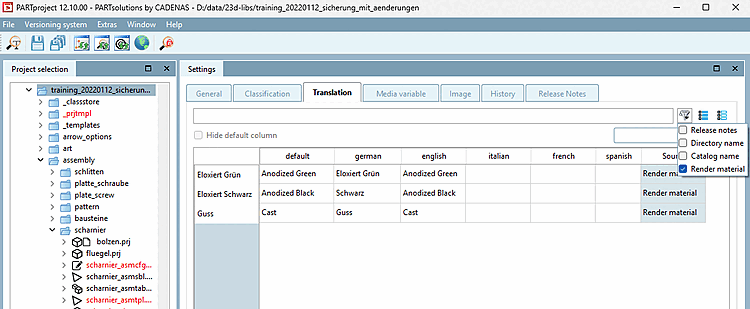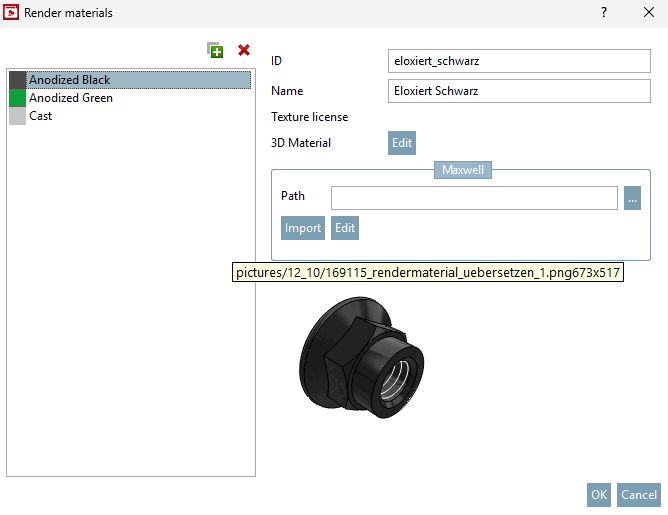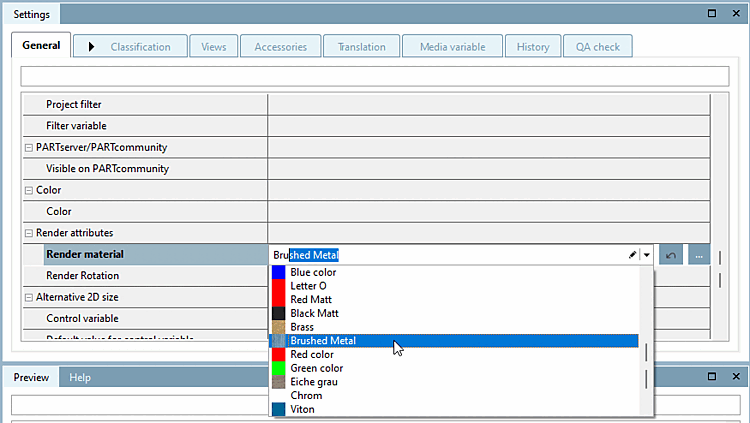At project level, you can assign a previously created render material to the component via a list field. You will see the ID and name as well as a small preview image of the material in the list.
You can translate the created render materials on the Translation Tabbed page for other languages of the catalog if required. These translations are then displayed in all places in the program where the render material is mentioned (this includes, for example, the General tabbed page and the Render materials window in PARTproject, as well as in the Texture label, Surface attributes [Face attributes] and Attribute feature [Feature attribute] docking windows in PARTdesigner ).
On the General tabbed page, the render material can be selected at file level via a list box.
At
Render materials without a registered name will see the ID.
If there is no translation for the render material, the name
displayed. If the render materials have a translation, the
translated name (it will be based on the language of the software
oriented) and the ID is displayed in a tooltip as soon as you start with
the mouse over it. In the .prj file, after selecting
of a render material, the entry ' RENDERMATERIAL= ' exists.
The renders
Materials are displayed at the directory level in the _materials folder. It can use this
in the Translation tab
understand. If it is a catalog that is shared, there are
the render materials in the respective directory structures of the
subordinate catalogs.
In particular, the
Translations of render materials are provided in the dir.def
, so the loading time of the material.xml is not affected.
The name of the
Render Materials is the block name in the .def
File. The type of material is ttype=RENDMAT stored.
Example:
[Test Material] ttype=RENDMAT english=Test Material french=matériel d'essai
Like everyone else
Type of translations, the translations of render materials can also be
exported or imported. Acceptable formats for this are CSV,
XLIFF and XLSX.


![[Important]](https://webapi.partcommunity.com/service/help/latest/pages/en/3dfindit/doc/images/important.png)


